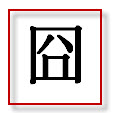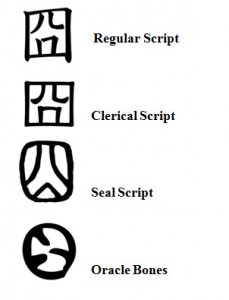 “Aww, just look at that face.”
“Aww, just look at that face.”
Seriously, take a good look at that face because it’s this week’s Chinese slang word: 囧- jiŏng.
Anyone who has browsed Chinese language websites over the past three years has likely seen this character. Around 2008, it took off in popularity, and it is often used on Internet forums and online chats as both a word and an emoticon. Some even claim 囧is the most widespread Internet slang word.
In some ways, 囧has become a ubiquitous slang term in the same way that “LOL” has in English. Both words were originally only used by young people on the Internet, but with the growth of Internet pop culture, LOL and 囧have become familiar to most English and Chinese speakers, respectively. Both words have even made it into oral usage.
Ironically, for a character that has only become widely popular in the last three years, it is actually one of the oldest characters of the Chinese language. 囧can be found among the earliest Chinese characters written on oracle bones. The original meaning was 光明 or “bright.”
Here you can see the evolution of the character:
Meaning
A picture is worth a thousand words…and also completely defines the modern usage of囧. If you imagine the character as a face with two slanted eyebrows and a mouth, you will understand 囧. It is most commonly used to mean “awkward,” “embarrassed,” “sad,” or “helpless.”
Example Sentences:
我在换衣服,这时两同学进来,我感到好囧!
I was changing clothes when two classmates entered. I felt so embarrassed!
好囧,我的宠物死了。
I’m really sad; my pet died.
Cindy Su & Jamie Fleishman both work at the Asian language learning publisher, Cheng & Tsui.
Cheng & Tsui is the leading publisher of Chinese language textbooks, interactive material and resources. Visit www.cheng-tsui.com for more information and to view our entire catalog.



Comments